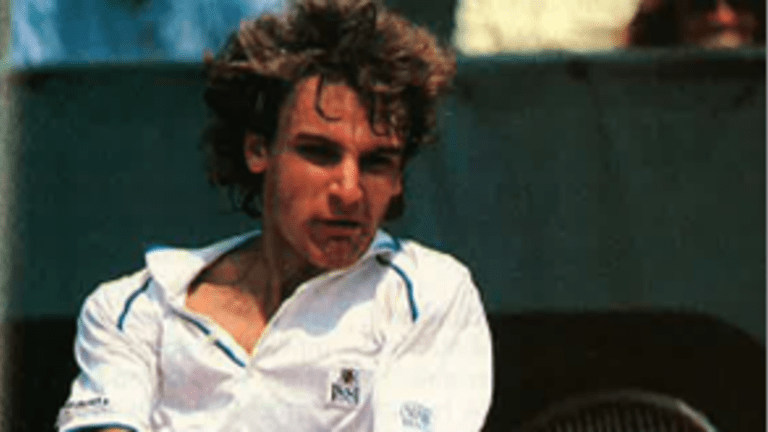When Roger Federer and his wife Mirka’s first set of twins were born in 2009, it was hard not to fantasize about their endless tennis potential (Mirka, who met Roger at the 2000 Sydney Oympics, also played tennis for Switzerland). The same goes for power couple Andre Agassi and Steffi Graf, who have two children, and for any iconic sports professionals’ offspring. Maybe we do this because we don’t want to let go of these players’ legacies, or maybe it’s simply just fun to imagine. Maybe we want to believe that our idol’s love of the game was so strong that they had to pass it down to their children.
And sometimes, when the children don’t emulate their parents’ success, we want an explanation.
Take Mats Wilander. The Swedish tennis superstar has won seven Grand Slam singles titles, was ranked No. 1 in the world and is inducted into the International Tennis Hall of Fame. At age 17, he shocked the world at the 1982 French Open by becoming the youngest-ever Grand Slam champion (at the time). Mats had a lot of success at an early age; by age 20, he had won four Grand Slam singles titles.
Mats would have four children with his wife Sonya: Emma, Karl, Erik and Oskar. Surely at least one would follow in his footsteps, right? Surprisingly, no. "He never forced [tennis] on any of us," says Mats’ second oldest child, Karl, currently a senior at Tufts University. "He was always a very mellow parent and just wanted us to be happy."
In fact, when Karl decided to take up tennis a bit more seriously, Mats made sure not to make him feel pressured and would only give him coaching advice or hit with him when Karl asked him to do so. It was imparting the value of education that Mats was more focused on—something he wished he had more of, as he explained in a 1995 interview with **TENNIS Magazine:
“Just the other night my wife and I were watching TV, and when the stock market quotations came up, I said I wish I knew how the whole system worked. It’s not that I’m very interested in the stock market as such, or in financial things in general, but it’s probably something I should understand…I know nothing about it. It’s a little strange.”
